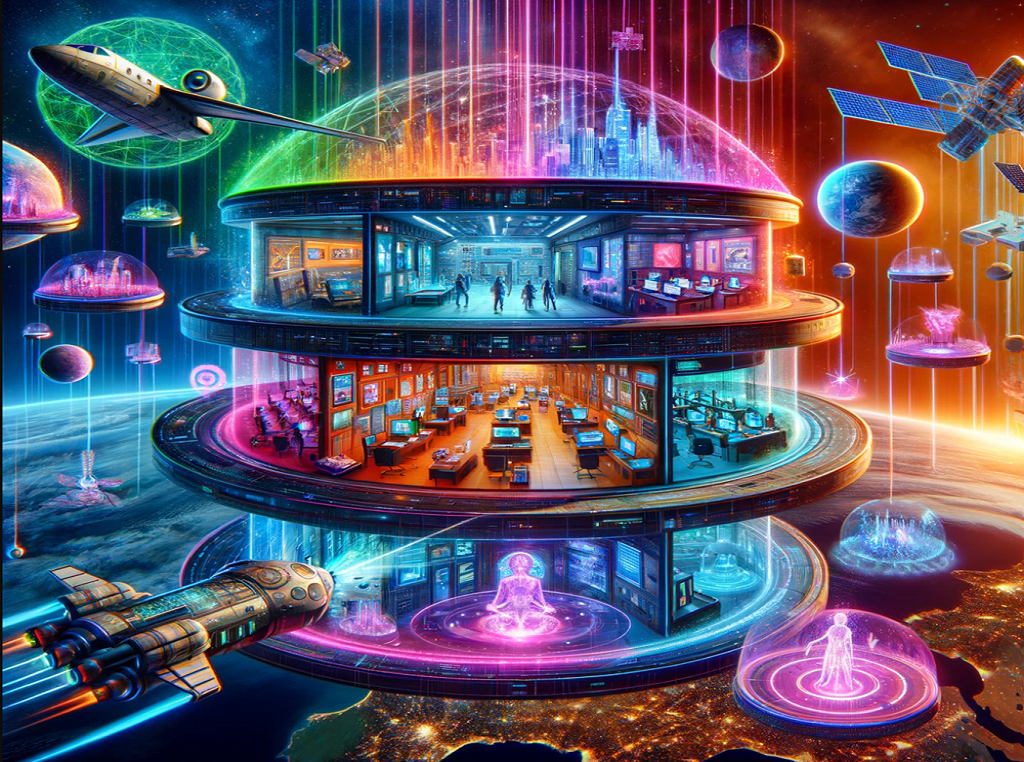The Metaverse, once a futuristic concept confined to the realms of science fiction, has gradually seeped into our reality, offering transformative potential across various industries. This digital universe, where users can interact with a computer-generated environment and other users, is no longer just a playground for gamers but a burgeoning platform for innovation, collaboration, and immersive experiences. Let’s delve into the real-world use cases of the Metaverse across different sectors, highlighting its impact, opportunities, and challenges.
Education and Training
In education, the Metaverse is redefining the learning experience, transcending physical and geographical limitations. Virtual classrooms in the Metaverse offer interactive, 3D learning environments where students can participate in simulations, conduct experiments, and explore historical sites or outer space in a highly engaging manner. For example, medical students can perform virtual surgeries, allowing for hands-on experience without the risk associated with real-life operations. Similarly, in vocational training, apprentices can practice skills in a virtual workshop, gaining proficiency before applying them in real-world scenarios.
Healthcare
The healthcare industry stands to benefit significantly from Metaverse applications, especially in patient care and medical education. Through virtual reality (VR), patients can receive therapy in environments tailored to their specific needs, such as exposure therapy for phobias or PTSD. The Metaverse also enables medical professionals to collaborate on complex cases in a virtual space, regardless of their physical location, fostering a more integrated approach to patient care. Additionally, it facilitates the visualization of complex biological processes and structures in 3D, enhancing the learning experience for students and professionals alike.
Real Estate
The Metaverse is revolutionizing the real estate industry by enabling virtual property showcases and transactions. Prospective buyers can tour properties in a virtual world, experiencing the space in a more immersive way than traditional photos or videos can provide. This not only saves time but also extends the market reach of properties to international investors. Moreover, the concept of virtual real estate has emerged, where users can buy, sell, or rent digital properties in the Metaverse, opening up new investment opportunities and challenges in defining ownership and value in digital spaces.
Retail and Fashion
Retail and fashion brands are leveraging the Metaverse to offer unique shopping experiences and product launches. Consumers can visit virtual stores, try on clothes virtually using avatars, and make purchases that are then delivered to their physical address. This blending of digital and physical shopping experiences caters to the growing demand for personalized and convenient shopping options. Additionally, exclusive digital fashion items for avatars are becoming a new trend, reflecting the blurring lines between virtual and physical identities.
Entertainment and Social Interaction
The entertainment industry is arguably the most natural fit for the Metaverse, offering immersive experiences that traditional media cannot match. Virtual concerts, exhibitions, and theme parks allow users to experience events from the comfort of their homes, with the added benefit of interacting with others in real-time. Social interaction in the Metaverse transcends physical boundaries, enabling people to meet, collaborate, and form communities in a virtual space. This has implications for social dynamics, identity, and digital citizenship, raising important questions about privacy, security, and the nature of human interaction in digital worlds.
Challenges and Considerations
Despite its vast potential, the Metaverse faces several challenges. Issues of privacy, data security, and cyberbullying are paramount, requiring robust governance frameworks. The digital divide could widen, with unequal access to the Metaverse technology based on geographic or economic factors. Moreover, the environmental impact of powering extensive virtual worlds cannot be overlooked.
The Metaverse is carving out significant niches across various industries, offering innovative solutions to age-old problems and opening up new frontiers for exploration and growth. As we navigate this digital evolution, it is crucial to foster an inclusive, secure, and sustainable Metaverse that enhances the real world rather than escaping from it. The journey into the Metaverse is just beginning, and its full potential is only limited by our imagination and our commitment to addressing the challenges that come with it.

